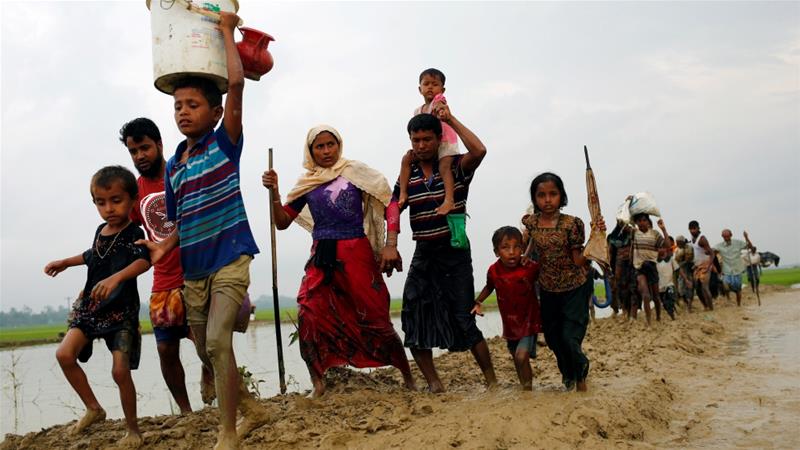The Rohingya Crisis
Mohammad Ponir Hossain/Reuters
Rohingya Muslims fleeing to Bangladesh. More than 370,000 people have poured into Bangladesh seeking refuge and peace.
October 5, 2017
For the past month, thousands of people in have been displaced due to an ethnic cleansing by the military in Myanmar. The Rohingya have been targeted by the military due to inter-community conflict that has been happening since 2012. There is a threat of being killed, raped, beheaded, drowned, or burned alive and de facto leader Aung San Suu Kyi has done nothing to protect the group against persecution. Nearly one million people have fled the country since the 1970s.
The Rohingya are a Muslim-minority group in Myanmar and are often classified as “the world’s most persecuted minority” (Aljazeera). Myanmar consists of a Buddhist-majority population. Despite living in Myanmar for many centuries, the Rohingya have been denied citizenship since 1982, and if they manage to get identity cards, they still cannot pursue work and educational opportunities, travel, marry, practice religion, access health services, vote, or run for office (BBC).
More than 370,000 people have poured into Bangladesh seeking refuge and peace. They walk for miles, carrying children or the elderly on their backs. Bangladesh is finding it difficult to provide for the refugees. It is a poor country and has a GDP per capita of only $1,900 at purchasing-power parity (The Economist). There is a lack of food, water, shelter, and other necessities so Bangladesh is facing the issue of having to provide aid to the group and is unable to do so financially.
There are also many calls for Aung San Suu Kyi to protect the Rohingya, but the government in Myanmar operate differently than other countries. Myanmar was under a military dictatorship for about 50 years before Aung San Suu Kyi was elected as a democratic leader. The military denied her title of president and holds the authority over defenses, internal security, border control, and the entire Civil Service. Aung San Suu Kyi cannot command the military or broader security forces to do anything if it goes “against the wishes of the country’s supreme military commanders due to the provisions,” according to the New York Times.
This is a genocide. There is no other word to describe this horrific persecution of the Rohingya. The Armenian genocide and the Holocaust are just two examples of how devastating ethnic cleansing is. We have to learn from history and be aware of what the world outside of our country is like. We have to do more.





































